Sixth Form Subjects

Computer Science
| Exam Board | OCR | Ask us a question | |
| Course Duration | Two Year, Full-Time | Apply | |
| Intake Date | September |
Course Overview
Computer Science is a practical subject where you can apply the academic principles learned in the classroom to real-world systems. It is a creative subject combining invention and excitement that looks at the natural world through a digital prism. The course will enable you to develop and apply the fundamental principles and concepts of computer science including abstraction, decomposition, logic, algorithms and data representation. You will develop your ability to analyse problems in computational terms through practical experience of solving such problems, building on your capacity to think creatively, innovatively, analytically, logically and critically.
You will be inspired, motivated and challenged by following a broad and practical course of study providing insight into, and experience of how computer science works with a clear emphasis on problem solving using computers, computer programming, logic and algorithms. While the techniques learned are portable to any high-level programming language, we will develop skills using libraries in python to interface with other systems and user interfaces and develop coding / scripting proficiency in JavaScript, lua, C#, html, css, php and sql.
Course Content and Assessment
There are three assessed components: two written exams (40% each)and a programming project (20%):
Component 01 – Computer systems (Exam)
A theory paper testing knowledge and understanding of the internal workings of the Central Processing Unit (CPU), the exchange of data, the methodology and standards in software development, data types and legal and ethical issues.
Component 02 – Algorithms and programming (Exam)
Algorithms and programming (Exam) – Tests the problem-solving skills needed to apply computational thinking and computational methods to solve a range of problems, abstracting real-life situations into workable algorithms and scrutinising, tracing through, analysing and improving given code / pseudocode.
Component 03 - Programming project (Extended independent project)
Programming project (Extended independent project) – A practical portfolio-based project based on a brief that you propose and produce in an appropriate high-level programming language or languages. You will follow industry methods (the Agile software development cycle, Kanban work-flow) as you develop your project, evidencing your development, testing and functionality as you go using video captures and voiceover commentary. In recent years, students have produced games using Python, Lua, Unity and Godot.
Learning Methods
Lessons will alternate between taught theory and practical skills development or programming project work.
Practical coding will be taught using supported independent learning so that you may work at your own pace, choosing and developing coding challenges in line with your interests.
There will be opportunities to experiment with different languages, Integrated Development Environments and user interfaces, particularly, Python, Godot, Lua (for games/app development), JavaScript and C#.
Theory lessons will build on and extend on the flipped learning delivery method used at GCSE: new theory content will be delivered through short video introductions with students composing notes and developing revision materials as the new content is learned. Lesson time will be spent answering questions, unpicking misconceptions and completing activities to consolidate and extend understanding.
Future Pathways
 POSSIBLE Careeer Pathways
POSSIBLE Careeer Pathways
Computer Science students can progress to higher education courses in the I.T industry then get jobs as:
1. Programmers and software development professionals
2. IT business analysts, architects and systems designers
3. IT user support technicians
4. Information technology professionals
5. Cyber security professionals
6. Data analysts
7. IT operations technicians
8. Natural and social science professionals
9. Actuaries, economists and statisticians
10. Higher education teaching professionals
Entry Requirements
Sixth Form requirements. Students should also be well motivated and have a good knowledge and understanding of Computer Science and coding. If students have not studied GCSE Computer Science, they must either have a background in text-based coding or an interest and commitment to learning to code in their own time in addition to the course content.
Student Testimonial
Testimonial in the pipeline
Other courses of interest
- Creative Digital Media Production
- Business
- Photography





